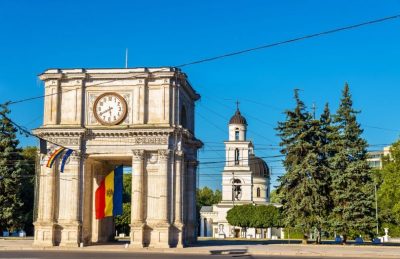by Henley & Partners
The Republic of Moldova is a testament to the hidden potential of Europe, and this charming and historically modest landlocked country is breaking new ground not only in the region but also the world of investment migration.
In July 2018, the Government of Moldova, together with Henley & Partners and the Moldovan Investment Company, launched the Moldova Citizenship-by- Investment (MCBI) program, commencing the journey of making this quaint country a European, and indeed global, beacon of optimism and success.
Currently, the Moldovan passport holds visa-free access to 121 destinations around the world. This list includes the countries of Europe’s Schengen Area, Turkey and Russia, making it the first program of its kind in this regard. To qualify for Moldovan citizenship through the MCBI program, single applicants are required to make a minimum non-refundable contribution of EUR 100,000 to the country’s Public Investment Fund.
As a commitment to ensuring that only the most suitable candidates are selected, Moldova has developed a four-tier due diligence system, making it one of the most thorough in the world, to uphold the standards of this program. Upon successful selection, document collection, and screening, citizens’ passports can be granted in a period of approximately three months. Thereafter, the applicant’s future generations can enjoy citizenship in this picturesque European country that boasts idyllic rolling hills, vineyards, and a pleasing continental climate.
Home to some of the world’s most innovative tech specialists, this traditional Eastern European country has been part of spearheading various global technological developments. In 2009, Moldova became the first nation to launch high-definition voice services for mobile devices, and the country is currently ranked third in the world in terms of internet speed. The country is also well on its way to becoming the first nation in the world to initiate an anti-human-trafficking campaign using blockchain technology.
A model of multi-culturalism, Moldova has been home to several groups of people since the Roman empire’s retreat in 271 CE, providing refuge to such diverse groups as the Goth, Hun, Avar, and Slav people. At present, three quarters of the nation’s population identify as ethnic Moldovans, with ethnic Ukrainians and Russians following as the next largest groups in the land after Russians immigrated to Moldova’s cities following World War II. As such, while the official language is Romanian, termed ‘Moldovan’ by locals, Russian is widely spoken.
Following the nation’s declaration of independence from the Soviet Union on 27 August 1991, Moldova entered into a market economy and went through an economic recession. The consequent financial losses devastated the nation and lasted for 10 years but in a commendable feat of growth Moldova managed to boost its GDP by 43% in just five years at the turn of the new century. Since then, the republic has experienced intermittent growth but remains committed to improving its global stature and quality of nationality. It has made notable efforts in achieving this aim.
In 1992, Moldova became a member state of the UN. It is also affiliated with the Organization for Security and Co-operation in Europe and the World Trade Organization, and the country has now set its sights on acquiring EU membership. In 2005, it became the first member of the Commonwealth of Independent States (CIS) to orient itself with the EU and open an EU representation. In 2014, Moldova signed an Association Agreement with the EU. In addition, its geographic and cultural positioning still afford it significant strategic advantage to both Eastern European (CIS) and Western European markets.
Moldova’s well-established wine industry is a world-class attraction and focal export market. Thanks to the country’s rich soil, the rest of the agriculture and food-processing industries account for more than a quarter of the country’s GDP. Winemaking practices in the country date back almost 5,000 years, and the Mileştii Mici winery on the outskirts of the capital city Chişinău holds the Guinness World Record for housing the world’s largest wine cellars. Moldova’s trade, information, teleservices, and transportation industries follow at an impressive 25% of GDP.
The newly launched MCBI program is committed to supporting and improving the country’s many well- established industries, bolstering its already high potential for growth and driving progress in the republic and the region.





